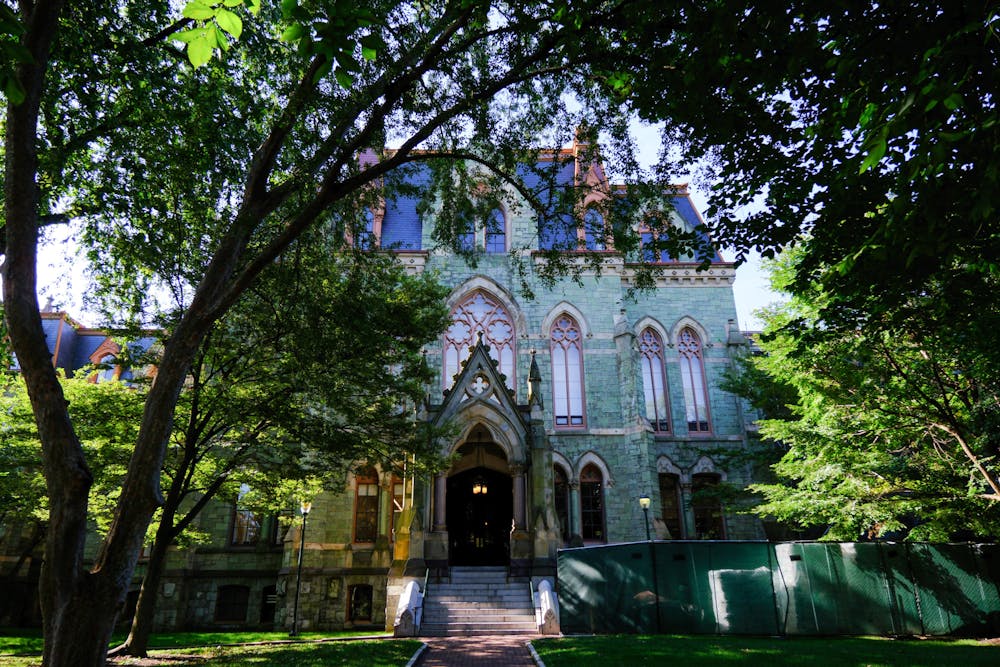This story is developing and will continue to be updated.
The Penn Club of Israel announced that their regional branch is disengaging from the University, disconnecting around 700 graduates from Penn's alumni regional club network.
In a statement obtained by The Daily Pennsylvanian on Oct. 24, former co-president of the Club and 1986 College graduate Dov Hoch pointed to both the University's response to the Palestine Writes Literature Festival and the University's lack of outreach to Penn alumni in Israel after the Hamas attack as reasoning behind their decision.
"Ben Franklin called America the New Jerusalem; Jerusalem is now calling out Ben’s legacy for balefully losing its moral compass," Hoch, a former member of the Penn Alumni Regional Clubs Advisory Board and former chair of the Penn Alumni International Clubs, wrote in the statement.
The Club was part of the Penn Alumni Regional Clubs network, which brings together graduates in specific locations. Clubs are located in over 125 locations around the world and coordinate opportunities for members to interact with their peers and stay connected to the University.
Hoch also expressed anger at Penn’s alleged lack of concern for Club members following Hamas’ attacks on Israel, writing in the Club's statement that "no one from Penn called" any of the board members.
A University spokesperson did not respond to a request for comment in time for publication.
In the statement, which said it was "in agreement with and on behave [sic] of the Board of the Penn Club of Israel", Hoch wrote that their alumni members will effectively stop their public support of the University. The Club plans to continue its philanthropic efforts within the Israeli community and beyond.
RELATED:
Hundreds of pro-Israel rally-goers emphasize strength of Jewish community, criticize Penn admin.
Penn Alumni president defends Magill, highlights 'misinformation' amid donor retaliation
“We are engaged with thousands of alumni who stopped donating to the University and are pivoting their support to both Jewish groups on campus and Israel-related activities," Hoch wrote. "We will continue to counsel prospective students and those accepted to Penn, albeit now with fervent bias against attending Penn."
Requests for comment were left with multiple of the Club's other board members. The DP has not currently verified all the claims in the Club's letter, which include motives behind the speakers at the Palestine Writes Literature Festival.
In the past, the Penn Club of Israel hosted Penn professors and alumni groups and helped organize the Penn-Wharton Israel Regatta.
In an interview with the DP, Hoch said that the decision to disengage from the University followed the Palestine Writes Literature Festival. He said that the Penn Club of Israel was dismayed that the University allowed the festival to take place as Yom Kippur began.
“If [the University wants] to put everything in the guise of academia and freedom of speech, don’t do it on a day where no one is capable of countering the speakers,” he said.
There is no evidence confirmed by the DP that any speakers at the Palestine Writes festival, which took place without incident, explicitly called for violence against Jewish people. Organizers of the festival did not respond to request for comment, but they previously told the DP that no antisemitic speakers were invited to the event.
On Sept. 22 — the day the festival commenced — hundreds of students attended Penn Hillel's "Shabbat Together" event, which promoted Jewish unity following several antisemitic incidents on campus separate from the festival.
In a statement prior to the festival, President Liz Magill condemned antisemitism, while also emphasizing the University's commitment to the free exchange of ideas.
Magill has condemned antisemitism in three University messages since the violence between Israel and Hamas began, reiterating the University's steps to combat antisemitism, and — more recently — she wrote that "all members of the Penn community" deserve to feel safe and respected.
Hoch said that the Club’s disassociation from Penn will not stop its philanthropic or cultural activities for Israeli graduates in Israel. Instead, it will cut off information, communication, and support for the University.
According to Hoch, databases cultivated by the Penn Club of Israel on the location and status of graduates will no longer be related to the University's administration, and the Club will also discourage potential students from applying to or attending the University.
“[We are] offering advice against attending Penn," Hoch told the DP. "We are telling people not to attend Penn. We’re actually talking to alum who have children there and suggesting they leave."
He said that the Club's decision comes after multiple donors, specifically chair of the Wharton School's Board of Advisors Marc Rowan, expressed criticism of Penn's administration. Hoch said that members of the Club "don't agree with how the leadership is making decisions."
Some of Penn's most well-known donors have halted their financial support, including 1987 College graduate Jon Huntsman Jr. and 1965 Wharton graduate Ronald Lauder. Both Huntsman and Lauder accused the University of providing an unsatisfactory response to the ongoing violence between Israel and Hamas and last month's Palestine Writes festival — prompting their decisions to withhold or threaten to halt funds.
Hoch said the lack of response or support for Penn alumni in Israel following the attacks has damaged his relationship with the University.
He added that neither he nor the Board has received any professional communication from the administration, although he said they knew these individuals were located in Israel.
"We have great friendships and an education, but we don't want anything to do with [Penn]," Hoch said.









